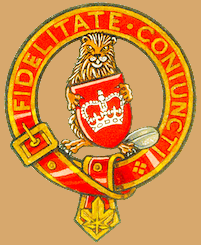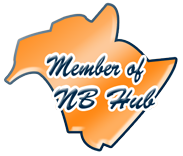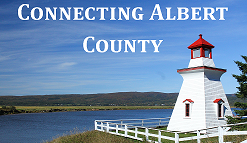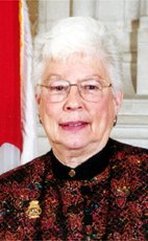piece by John Boyko, an author of seven books on
Canadian history and politics. In this opinion piece John lays
out his views on abolishing the monarchy (he is for it). I found
myself angrier than I expected upon reading his take on the
issue which required some reflection on my part.
As someone who happens to like his biography of R.B.
Bennett I was somewhat disappointed by his stance. In the
same way you might be disappointed to find out that someone
who's talents you admire has an unexpected character flaw.
But reading the article there was a more basic reason for my
anger: A historian should know better.
And so as a bit of catharsis I am going to dissect what John
wrote. And, in fact, the opinion piece nearly demands it be
dissected due to the surprisingly low quality of the argument
put forward.
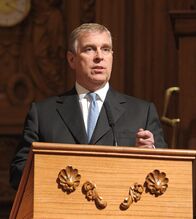 Prince Andrew on 29 January 2013, Photo Credit: Titanic Belfast
Prince Andrew on 29 January 2013, Photo Credit: Titanic Belfast to Prince Andrew. His allegedly
reprehensible behaviour and
disastrous interview invite
Canadians to consider our ties
to the monarchy. It’s time to cut
them."
Mr. Boyko does not make it past the
first paragraph before he stretches
reason beyond its breaking point.
Why should Prince Andrew's alleged
acts (or barring that, his pretty questionable decisions
regardless) invite Canadians to consider our ties to the
monarchy? When it was revealed that Justin Trudeau had did
blackface on more than one occasion I don't recall any
hand wringing over the 'need' to abolish the prime minister's
office. Likewise, when a federal judge (only an appointment
away from the Supreme Court) made a disgusting comment
during a rape trial the reaction was not op-eds on how it was
time we put the Supreme Court to bed. In both of these cases
we recognize that the institution is bigger than the temporary,
fallible, person who occupies it (or could, maybe, occupy it if
the stars aligned correctly). So, why is no such consideration given to the institution of the monarchy? Mr. Boyko does not
say. His failure to address this question leaves the impression that Prince Andrew's alleged actions are mentioned solely to
put his audience in the right mood to accept the rest of his argument. While this is great use of rhetoric it is hardly an
argument.
final step in our long stroll to sovereignty. It began
with Queen Victoria signing the British North
America Act. It was a baby step with Britain still
controlling all that mattered. But we kept walking."
Amazing. Everything John wrote here is wrong. For starters it
conflates Canada's ties to Britain with Canada's ties to the
monarchy. It also manages to ignore that the political history
of all of Canada's founding peoples is largely monarchical, be
it the French ancien regime, English limited monarchy, or
Aboriginal hereditary chief traditions. No part of Canada
has ever been a republic. I think Mr. Boyko is downplaying
just how radical this act would be.
In an subtle way this section undermines his argument.
Queen Victoria supported Confederation and helped get it
across the finish line. When John A. Macdonald had his
audience with the Queen it is recorded he declared,"We have
desired in this measure to declare in the most solemn and
emphatic manner our resolve to be under the sovereignty of
Your Majesty and your family forever." John A. made no
such declaration regarding Britain.
Mr. Boyko then proceeds to go off on a tangent detailing
about how Canada slowly moved away from British influence
over its affairs. But I want to instead detail the history of
Canada saying yes to the monarchy. We said yes when the
details of Confederation were being worked out. Indeed, the
monarchical character of Canada was agreed to more readily
than any other measure.
The main result of the King-Byng Affair was that the governor
general would henceforth be the monarch's representative,
not the representative of the British government. Once again
we said yes.
When the Statute of Westminster was passed in the 1930s we
said yes again. The Canadian government began advising the
monarch directly. King Edward VIII's dedication of the
Canadian National Vimy Memorial was the first act advised
and supported by his Canadian ministers alone.
first Canadian-born governor-general. Our head of
state would never again be another left-over lord."
Our head of state is the monarch, not the governor general. A
wizard, er, historian should know better!
a sham; that we and not the Crown owns our public
land, and that in a mature democracy, it has no place
in our courts or on our money."
As someone currently in the process of trying to get the
property of an old railway line currently owned by the Crown
transferred to my family I can assure you we do not own the
Crown lands and I highly doubt becoming a republic is going
to change that. Indeed, certain research suggests republics
are less respectful of property rights than would otherwise be
the case.
The appeal to democracy is amusing. Many monarchies are
also mature democracies. There is no inherent contradiction
between the two. And arguably, having a monarchy is better
for democracy.
But more disturbing is that Mr. Boyko doesn't touch on what
happens to the Crown's reserve powers if he actually gets his
wish. Better to ignore such a difficult question, I suppose.
Governor General’s $289,000 salary and all the other
attendant costs that exceed $50 million a year."
This is brought up repeatedly by republicans while ignoring
that presidencies have tended to be more expensive and that
we would likely have a president. But since Mr. Boyko doesn't
mention establishing a presidency we are again left with the
nagging question of the reserve powers. But a bigger issue is...
Quick! What is the size of the Canadian federal budget? If you
said $355.6 billion then congratulations on looking that figure up on Google. I don't think Mr. Boyko did. $50 million is the tiniest nod to 'fiscal responsibility' the government could
possibly make (assuming no presidency is established).
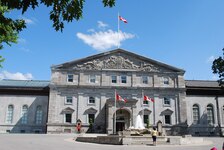 Rideau Hall, Photo Credit: Concierge.2C
Rideau Hall, Photo Credit: Concierge.2C the Royal housing across
Canada, beginning with
bulldozing the shamble on
Sussex and moving the prime
minister into Rideau Hall."
Let's start by pointing out that the
reason 24 Sussex Drive is in such bad repair is that successive
prime ministers have balked at the idea of fixing it. Not
popular with the people, you know. Even in the Trudeau
family's temporary home at the Rideau Cottage the kitchen
needs work. I see no indication that giving Rideau Hall over
to the tender mercies of an endless stream of prime ministers
uninterested in upkeep will do Rideau Hall any favours.
Governor General’s ceremonial duties and leave the
rest to a deputy prime minister; a person elected and
not selected."
Our newly degraded democracy is looking shabbier all the
time. Joyless and dull. Many of the governor general's
ceremonial duties have to do with helping the people know
the government gives a damn or encouraging Canadians to
aim higher. But perhaps some of those duties will be saved for
the deputy prime minister. A person whose name does not
immediately come to mind. But you see, them being elected is
the problem. Mr. Boyko started off his article wanted to drop
the monarchy because of the alleged actions of one man. Here
he supposes that an elected official will behave better than a
selected or hereditary one? We have too many contemporary
examples proving this to be false. Or perhaps Mr. Boyko
believes that as long as they are elected it doesn't matter of
what quality the person is carrying out these duties?
constitutional conference. Embrace it. Let’s ape our
founders and ensure that delegates are the leaders of
our federal, provincial, and territorial governments
and their opposition leaders. Indigenous
representatives must be at the table. Let the
conference begin by declaring a republic and then
addressing the claims of Quebec’s Bloc and the
prairie’s Wexit."
This is the point where I question whether Mr. Boyko's entire
exercise has been a clever satire. Not only will a constitutional
conference have all the provincial governments, the federal
government, territorial governments attending but also
indigenous representatives and opposition representatives
from each legislature. How will such a group come to any sort
of agreement? The original conferences were a success
because there was some agreement to build on (starting with
a shared sovereign). And even then not every colony got on
board with Confederation right away.
And it will solve regional grievances too! And everyone gets a
pony!
"Let us welcome Prince Andrew’s invitation, seize the
moment, and engage in a serious national
conversation."
Serious national conversations start with a serious voice to set the tone. Let me know when such a person appears because it certainly was not the writer of the Toronto Star article.
Loyally Yours,
A Kisaragi Colour
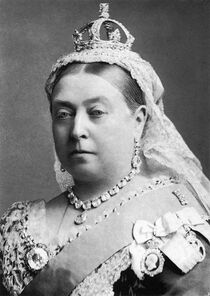
 RSS Feed
RSS Feed
